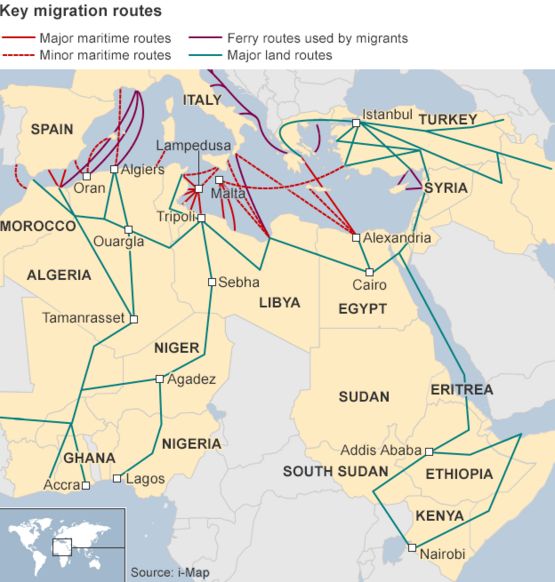News
Faced with a huge influx of people, Hungary has built a controversial 175km (110-mile) razor-wire fence along its border with Serbia. It has also urged EU partners not to send back migrants who have travelled on from Hungary.

Some of the worse tragedies in 2015 include:
- Two boats carrying about 500 migrants sank after leaving Zuwara in Libya on 27 August;
- The bodies of 71 people, believed to be Syrian migrants, were discovered in an abandoned lorry in Austria on 27 August;
- A shipwreck off Italy's Lampedusa island killed about 800 people on 19 April;
- At least 300 migrants are feared to have drowned after attempting to cross the Mediterranean in rough seas in early February
Where are they going next?
Under an EU rule known as the Dublin regulation, refugees are required to claim asylum in the member state in which they first arrive. But some EU countries, such as Greece, Italy, and Croatia, have been allowing migrants and refugees to pass through to countries where they have families and better prospects.
Germany receives by far the most asylum applications in the EU and says it is expecting 800,000 refugees to arrive this year.
In order to match Germany's 2015 projection per population, France would need to accept more than 650,000 people and the UK nearly the same amount. But France has pledged to accept just 24,000 and the UK 20,000 over five years.
Between 2,000 and 5,000 migrants are camped around Calais, which is just 1% - 2.5% of the more than 200,000 who have landed in Italy and Greece.
Hundreds of thousands of people are somewhere along the route to Germany, in Hungary, Croatia, Austria, Serbia, and elsewhere.
Original Source: www.bbc.com
